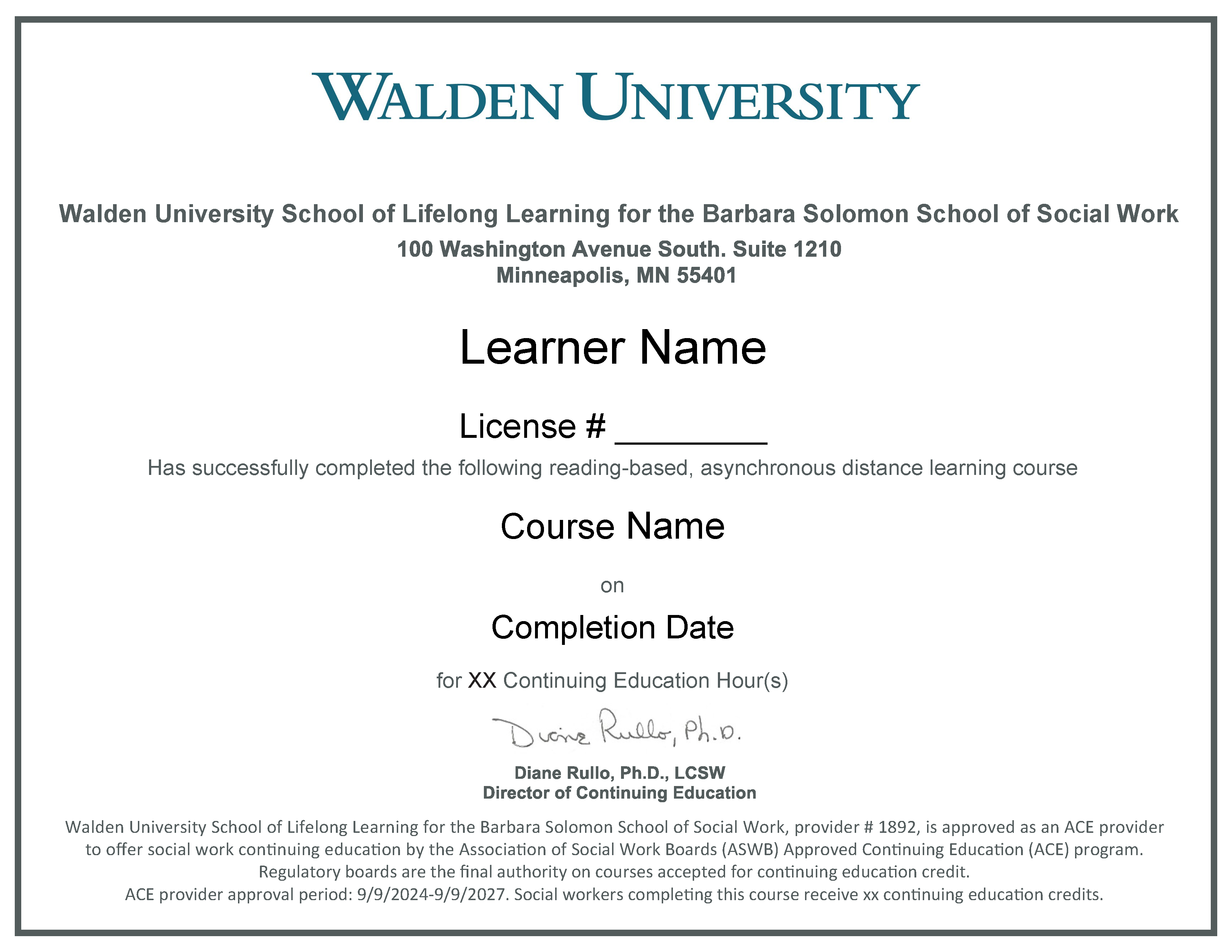Description
In today's society, mental health disorders are often treated with chemical interventions. While social workers cannot prescribe medications or recommend any specific medication, over-the-counter product, or supplement, social workers regularly treat clients who are on psychotropic medications and often see these clients more frequently than the health care provider with prescribing authority. Social workers should be familiar with these medications' desirable and undesirable effects, becoming better prepared to consult with the prescribers when there are questions or concerns about specific clients and their psychotropic medications. This course will provide foundational knowledge of current psychotropic categories and basic psychopharmacological concepts.
This 3-credit, reading-based asynchronous online course was developed in 2024 for social work professionals. The course includes written content, optional videos, interactive activities, and links to outside resources. The course requires the completion of a 20-question post-test and brief course evaluation that can be accessed from within the online learning environment. See our FAQs page for more information about system requirements. CE credits are issued for required material only.






